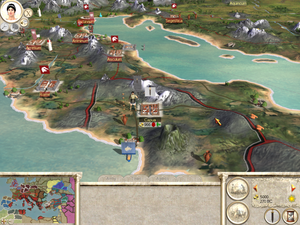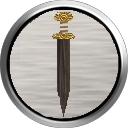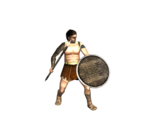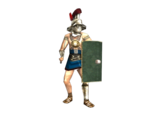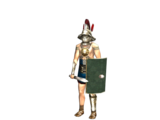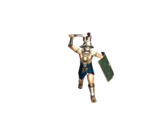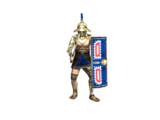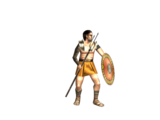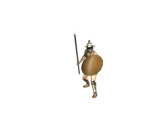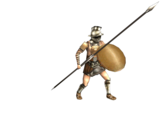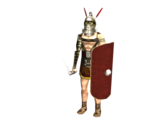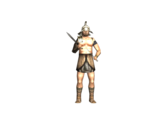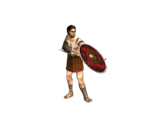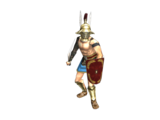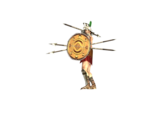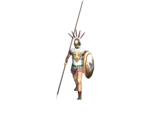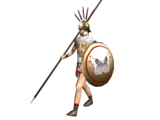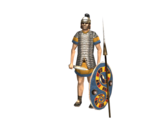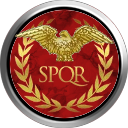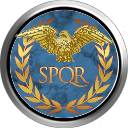Spartacus Total War
| Spartacus Total War | |
|---|---|
| Platform | Rome: Total War Barbarian Invasion |
| Mod Type | |
| Era | 73 BC - |
| Mod Leader | neo_deus |
| Release Status | |
| Forum / Thread | Here |
| Campaign Map: | |
Contents
Introduction
Focused on the gladiator revolt lead by Spartacus in 73 BC and at the same time, the various events taking place at that time, such as the war against the Kingdom of Pontus and the rebellion of Quintus Sertorius in Iberia.
Description
Spartacus: Total War is a modification that focuses on the gladiator uprising by Spartacus and other events at that time, such as Quintus Sertorius's rebellion in Iberia and the war with King Mithrades of Pontus.
Factions
The Gladiators
In 73BC, the slaves from a gladiatorial school near Capua revolted against their masters and defeated the school's guards. In their escape they encountered a wagon full of weapons used by gladiators that allowed them to defeat the garrison of Capua that was sent against them as soon as the authorities there heard about the rebellion.
With the news of this first success many other gladiators from Capua, that was famous by its gladiatorial schools, as well as other slaves from the neighbouring towns, joined the rebellious slaves in the hills of Mount Vesuvius, to where they had retreated.
Their leader is Spartacus a thracian soldier that deserted from a auxiliary force of the roman army, was captured, sold as a slave, and then made a gladiator due to his strength. His experience in the ways of war, his intelligence and resourcefullness, allied with the disdainful way the Romans have faced this revolt, have given Spartacus and his people the time to prepare to meet the enemy.
The Gladiator's Units
Shepherd Slingers
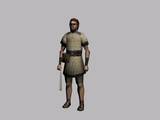 Not many years have passed since the Social Wars that opposed Rome against the rest of the cities in Italy. And although they have been defeated, some of them are always prompt to rebel against the Roman oppressor.
Trained and equiped in Roman style, this troops are a precious addition to Spartacus's army.
Not many years have passed since the Social Wars that opposed Rome against the rest of the cities in Italy. And although they have been defeated, some of them are always prompt to rebel against the Roman oppressor.
Trained and equiped in Roman style, this troops are a precious addition to Spartacus's army.
Italian Officers
Although some troops will join the rebellion, they are still commanded by their own officers.
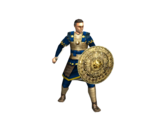
The Republic of Rome
These are turbulent days for the Roman people. After the death of their first dictator in a hundred years, and almost recovered from the devastation that decades of struggle, both abroad and internal, brought, Rome finds itself threatened in various fronts once again.
Iberia, one of Rome's most ancient provinces, is now nearly completely dominated by the rebel Quintus Sertorius and his iberian allies, and he is not about to content himself with it. Sertorius must be stoped at the price of having him nominated dictator, or even worse... king of Rome!
In the East, King Mithridates and his armies threatened to take over roman influence and power in Asia Minor for years, and now, after they have invaded, yet again, roman provinces and allies there, war against Pontus has been declared.
Parthia also threatens roman territories. The descendants of the Persians have expanded through the lands of Babylonia, Armenia and Arabia until they reached almost Rome's back door. Will the Parthians be willing to halt their expansion or will war follow?
And in Italy, who is this man that drives a horde of slaves, gladiators, and even freemen who have decided to join an army of rebels? Surely nothing more than rabble scum to be delt easily by Rome's armies....
Roman Rebels
When civil war erupted in Rome, Quintus Sertorius took the side of his uncle Marius and travelled to the Iberia to secure to loyalty of those provinces but was soon defeated by one of Sulla's legates. Sertorius fled to Mauretania where he organized an army and defeated many of Sulla's legates there. The news os his success in Africa reached the Iberian tribes who were being attacked by Sulla's legates in the region and an embassy was sent asking him to return to Iberia to lead it's armies against the oppressor. Sertorius soon disembarked on Iberia bringing reinforcements from Africa and with the help of the Iberian tribes, took over almost all of the Iberian territories under the Senate´s control. The power of Sertorius, however, is not undisputed. They must deal with the Senate's forces still in the peninsula and at the same time strengthen his dominions if they are to survive if something happens to him. Also, it is not clear what will be course his Iberian allies will take when the Senate's forces are defeated...they called upon Sertorius to liberate them from one master's yoke, who says they will bow to another? Only after all these questions are solved the "rebels", as the Senate calls them, can think about higher projects. Will they march upon Rome to deliver justice to those who kicked them out of their homeland made them pariahs? Or is an independent Roman country in Iberia is enough?
The Celts
Far to the north, beyond the borders of the mysterious Gauls, live an even more mysterious people... The Celts were the rulers of western Europe many centuries before the Greek and Roman arrival to their shores and borders. Their influence brought division between those who were closer to them, thus suffering their influences, and those who lived further, maintaining their ancient lifestyle and warfare. They have suffered influences too. From the people of the great island of Britannia of the Germans against who they fought time and time again.
The Celt rulers have tolerated their Gallic brothers and sustained their Germanic neighbours invasions for too long. It is time for them to retake Gaul that was once theirs and invade and defeat the Germans once and for all. Who knows? Perhaps even Iberia, a posession lost centuries ago to Iberians, Carthaginians and Romans. To a nation of warriors and heroes, nothing is impossible. And when they have what is rightfully theirs, even the proud romans will have to bow to bow to the Celtic Kings... if they left them alive to be able to bow.
The Eastern Provinces
After the wars against the Seleucid Empire some of the cities in Syria were somewhat absorbed into the Roman sphere. The truth, however, is that Rome, represented by its Senate, as always been reluctant to create new provinces, thus increasing its bureaucracy and was happy to let those cities be governed by local Etnarchs or even pro-Roman princes from defeated households, as long as they keep paying tribute and wont do anything that goes against the Senate's interestes there. Now, however, with the war against Pontus and the always threatening Parthians expanding untill the point of reaching roman borders the necessity for a firm and capable command demands that someone from the senatorial ranks is sent to the Eastern Provinces in order to establish order and defend them at all costs.
The Senate has sent a Proconsul there with orders to halt the armies of Pontus if they try to invade. Also its his duty to begin diplomatic conversations with the Parthians to remind them of the pact they signed with Sulla, representing the Senate, not so many years ago, and to act accordingly if they don't want to remember.
It's not an easy job. The Senate has already three different wars to fight so its not likely to be able to help with money or troops. So it's up to whoever is in command to act, and act quickly.
The Eastern Provinces territories.
Mauretania
Having been allies of Rome in the last war that opposed the Republic against Numidia, the Mauritanians profited from many previous Numidian lands given to them by the Senate as a reward for their support.
The Mauritanian kingdom is located in the western part of Africa and has as neighbours their arch-enemies, the Numidians. They have always been enemies, but ever since the crucial help the Mauritanians gave to Rome in the last war of the Numidians against the Senate, they have sworn revenge against each other and war is inevitable. Although from Punic descendance the royal house of Mauritania relies on the berber tribes of the desert to carry their army duties.
Numidia
The Numidians were originally divided into two berber kingdoms, the Massylii and the Masaesily. They were a country divided, each king always fighting for proeminence. During the Second Punic War, however, Masinissa, the king of the Massylii, allied himself with Rome, while Syphax of the Masaesyli, chose the Carthaginian side. When the war was over and Carthage, along with its allies, was defeated, Masinissa was able to unite Numidia in one single kingdom, profiting from both the lands of the defetead Masaesyli king and lands that were before in Carthaginian hands.
Having in their hands some of the most fertile lands in the world, along with seasoned warriors to maintain their lands free of invaders, the Numidians thrived as allies of Rome rulling almost all of the western north Africa.
When King Jugurta rose to the throne of Numidia, his throne was disputed by one of his half-brothers and civil war started once again. The killing of some Roman business man who weas aiding his rival brought Rome to declare war on Jugurta. In the first part of the war the Numidians gained the upper hand thanks to the inactivity of the Roman commander, but when Gaius Marius assumed control, defeat after defeat followed. Although defeated, the urge of returning to Rome to defend its borders from a germanic threat, allowed Jugurta to stay in the throne, though with a much smaller kingdom. Its bigger part was divided between the new Roman province of Africa and the Mauritanian king who allied with Rome.
Now the Numidians are in a fragile position, surrounded with unfriendly neighbours. With Rome distracted with his own backyard perhaps it is the moment to strike on those who betrayed them, taking back the lands that belonged to the King of Numidia for generations. And then, when Numidia is again a rich kingdom, maybe they can try to face the might of the Roman legions once again.
The Kingdom of Bithynia and Pergamum
The rulers of Bithynia asserted their independence even before Alexander's conquest of the Persian Empire, and after it managed to maintain their own rulers by a politic of alliance. Nicomedes I was Bythinia's greatest King. His rule was long and prosperous and he even founded the capital of the kingdom, Nicomedia. His successors maintained the strength and independence of the kingdom for several years even when the power of Rome reached their lands, after the first Macedonic War.
The Atallid dynasty was, by anyone's standards, a great one. They encouraged trade, art, founded cities and improved those already existent. The capital of it's Kingdom was Pergamum, one of the largest and most beautiful cities in the ancient world. The Atallid kings allied themselves with Rome since the first Macedonic War and maintained that alliance during many years and many wars, even being rewarded with conquered territory after the war against the Seleucid Empire. When king Atallus III died without an heir he bequeathed the whole of the Kingdom of Pergamum to Rome in order do prevent civil war. But the Senate of Rome, always a reluctant heir, was happy to put it under control of another of its allies, the King of Bithynia, thus forming the Kingdom of Bithynia and Pergamum.
The Kingdom of Bithynia and Pergamum is considered Amicis Populus Romanus, i. e., friend and ally of the roman people. It maintains its independence and native princes, and as long as it does nothing that goes against the will of the roman senate, it will not interfere.
The kings of Pontus have desired to absorb Bithynia into their own posessions for too long, and Mithridates VI, named The Great by his people, almost managed to do it, if not for the quick intervention of Rome. Now they must prepare to defende their borders against the Pontic agressor and, who knows, perhaps even expand their frontiers. The senate of Rome is known for being more than willing to delegate the rule of foreign provinces to those who help them fighting. And with all the trouble in the West, who knows for how long Rome will stand strong enough to maintain their arm so streched...
Sarmatians & Roxolani
In the 3rd century BC, the Sarmatians invanded the European steppes, replacing the Scythians as the dominating power. Some centuries later, the Roxolani claimed independence from their Sarmatians lords, and now dispute with them the dominance of the steppes.
Parthia
The Parthians are a nomadic people who conquered and settled in the area near the Caspian Sea in the 4th century BC as part of the Dahae confederation. Since that time the Parthians, under their Arsacid rulers (named after King Arsaces I), have fiercely maintained their independence. The Seleucids have, from time to time, claimed to be the overlords of Parthia and, from time to time, have actually been strong enough to try and enforce their claim, but the Parhians outlived them and without the shadow of the seleucids, have become the dominant power in the region.
The Parthias are alrady a big empire, but have the potential to be a great one, as they sit close to or astride the main trade routes from the east to the Mediterranean. The wealth of the world flows through these lands: a fortune that could pay for any army that an ambitious king could imagine. This wealth is there for the taking, for the people with the will to stretch out their hands and grasp it.
The Parthians now stand in the backdoors of the Roman borders and must decide whether they will do war against the heirs of Romulus or turn their armies in another direction.
Egypt
After the death of Alexander the Great the empire he had created tottered and fell into disarray with remarkable speed. His empire was the largest ever seen, and the generals struggled against each other for the ultimate prize that none of them was quite strong enough to gain. The Diadochi, or Successors, were only strong enough to hold together fragments of Alexander’s empire.
Egypt was one part of that empire and by anyone’s standards it is an ancient land. It is now ruled by Greek Pharaohs, the descendants of Ptolemy I, one of Alexander’s able generals. The Ptolemaic dynasty adjusted rapidly to Egyptian ways and adopted the many of the royal ways of the Pharaohs - including divine status and marriage between the Pharaoh and his sister in each generation. All the succeeding Pharaohs have been called Ptolemy, and their sisters (more often than not) Cleopatra in the Egyptian fashion.
However, this is not the Egypt that Alexander and Ptolemy Soter have created. The lands of the Nile have been devastated by wars against it's neighbours and by civil wars between the claimants to the throne, and the Ptolemaic Royal House, that once ruled in Cyrenaica, Syria and Anatolia, now counts only with Cyprus amongst it's foreign posessions, and the current King is only so because Sulla made him so.
Rome is always a threat, but there are closer threats. Parthia, Pontus and Armenia all look with envy to Egypt and would do whatever it takes to get their hands on its lands. If Egypt can defeat it's enemies and take back the lands that were once theirs, then the Ptolemaic House can rule again a great empire and make Alexandria the Capital of the World.
Features
-New Factions, units.
-The map will suffer some changes:
- -More regions will be added
- -The starting territories for the factions
The Team
neo_deus - Everything.
History
On March 2nd, 2009, neo_deus first posted the wip.
On October 29th, the forum was created.
